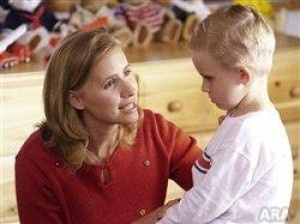We reached out to the amazing pediatrics team at Carson Medical Group Carson Tahoe Health…
Talking to Your Kids about Tragic and Violent Events

Over the past year, we have seen too many tragic, violent incidents right here in the U.S.: Sandy Hook shootings, MIT shootings, Boston Marathon bombings – and the shooting at Sparks Middle School right here in Northern Nevada. These types of events can be difficult to discuss with children, who may be confused and scared about what’s going on. Here are some tips for talking to your kids about tragic events, as well as some helpful resources.
For Preschool Children:
1. Try to prevent them from hearing and seeing footage about tragic events altogether – it’s too soon for youngsters
For Early Elementary School Children:
1. Keep your explanations brief and simple to understand
2. Reassurances are key – make sure they know that adults are there to protect them and that they are safe at home and school
3. Provide them with real-life examples of how they are being protected – e.g. emergency drills at school, school aids/monitors, locking doors, etc.
For Upper Elementary/Middle School Children:
1. This age group may need assistance with separating fantasy from reality – help them recognize misleading or exaggerated information about the event
2. Point out safety/anti-violence efforts of community and school leaders
Upper Middle School/High School Children:
1. They will have their own opinions about what causes people to commit violent acts and how they can be prevented
2. Listen to their opinions
Other Helpful Hints –
1. After a tragic event happens, maintaining a normal routine can be very helpful. Keeping a regular schedule can offer reassurance to kids, and can help their overall physical health.
2. Review safety procedures to help empower kids and give them a greater sense of security – e.g. locking doors, reporting strangers on campus, not letting strangers in, etc.
3. Monitor social media use – seeing too much coverage of the event can cause fear and anxiety, depending on the child.
4. Know your kid and how well they cope – watch for warning signs like crying, stress, nightmares.
This last tip is the biggie… while the others tips can be a good starting point, it is important to remember that each child is different, so the key to effectiveness is to really know your kid. Some children are more sensitive than others, especially those who have experienced a traumatizing event.
If the problem persists, your child may benefit with help from a professional from the field of psychology, psychiatric social work, and/or case work. Carson Tahoe Health’s Outpatient Behavioral Health services specializes in helping with treatment for general child and adolescent services. For more information, visit here or call (775) 445-7756.
Sources:
http://www.washingtonpost.com/blogs/answer-sheet/wp/2013/04/16/how-to-talk-to-children-about-deadly-boston-marathon-bombings/
http://www.courier-journal.com/
http://www.ivillage.com/how-talk-kids-about-tragedy-age-age/6-a-533408



